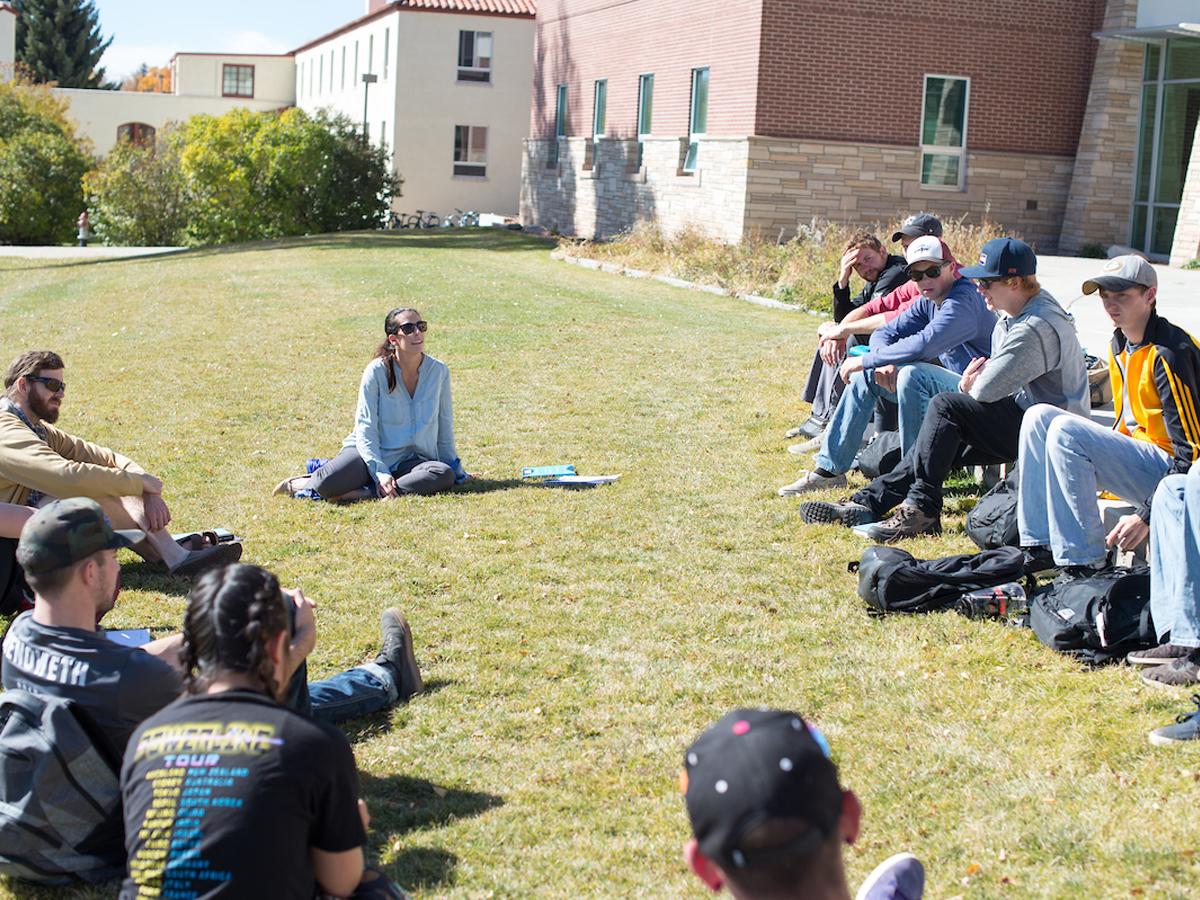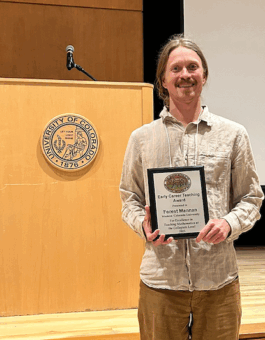Over the next 30 years, the energy production business will likely see more change than it has in the last century. The Energy Information Administration projects that the vehicles we drive will increasingly be powered by electricity instead of fossil fuels. The power grid will be flooded with energy from renewable sources and new ways of capturing the carbon we produce will come on line.
It’s a future the graduates from Western Colorado University’s Energy Management (EM) program will be prepared for.
As the program continues to experience an upward trend in enrollment after difficult years that followed the oil price plunge of late 2014, the EM program has come back more diverse, in many ways, and more resilient than ever before, thanks in part to the leadership of Program Director Jessica Laramie.
Laramie’s Efforts to Rebuild the Energy Management Program
When Laramie joined the Western faculty after leaving a career in energy in 2015, it was only six years after the University’s EM program got its start. When she took the reins in 2020, her primary objectives were to grow enrollment and build a more sustainable program through the program’s curriculum and partnerships with industry. As part of this effort, the program hired Veronica Wilde as External Relations Coordinator in 2020. “Our recent successes in enrollment and partnerships are largely due to Veronica’s efforts,” Laramie said.
A large part of the program’s focus is developing students into landmen, or professionals who are the public-facing side of energy development, who find and interact with landowners interested in hosting and leasing their land to energy companies.
Breaking Barriers in the Energy Management Field
In the last five years, Western’s EM program has produced three students who beat out candidates from programs across the country to receive the Outstanding Graduate Award from the American Association of Professional Landmen. Laramie herself was awarded the 2022 Denver Association of Professional Landmen’s Education Award along with the 2023 AAPL Director of the Year Award, in recognition of her success in rebuilding the program.
The opportunities aren’t all for landmen, either. Women are increasingly being drawn to the work and finding opportunities.
“There are organizations in the private sector that are working really hard to address diversity and equity,” Laramie said. “And our program is trying really hard to address them also. Two or three years ago we were 93 to 7 percent male to female, and now we’re closer to 80/20. So we’re making progress, but we’re not there yet.”
Changes in the Energy Management Industry
Regardless of who’s doing the work, for most of the profession’s existence, success meant finding landowners who wanted pumpjacks and pipelines on their land in exchange for a royalty check. And while that’s still a big part of the business, as wind and solar projects begin to overlay some of the oil and gas developments, and technologies like carbon sequestration are being employed, the EM program at Western is adapting to the changing industry.
How Western Colorado University Helps Students Grow their Energy Management Careers
“Over the last few years, we’ve worked hard to emphasize a holistic approach to energy development within our curriculum. What we’re trying to do is generate as much opportunity for students to find a pathway into a career in energy that fits their personal value sets,” Laramie said. “That varies broadly across the Western student population. And there is so much opportunity across all sectors.”
As a result, graduates from the program are getting interest from companies in all sectors of the industry. Over the last few years, the program has a perfect record, placing every student that graduates in a job or graduate program.
“[Laramie’s] experience in energy and her passion for students and teaching have done great things for the program and our students,” said Kevin Nelson, associate dean of the Borick School of Business at Western. “She has created and grown relationships with great industry partners that help our students with internships, skills, and careers.”
To learn more about finding success in the Energy Management program at Western, visit western.edu.
Author Credit: Seth Mensing


